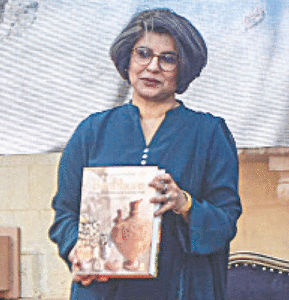KARACHI: While presenting Sindh’s education budget for the fiscal year 2023-24 on Saturday, Chief Minister Syed Murad Ali Shah said education was an essential investment, also acknowledged worldwide as the most powerful agent of change.
With an aim at improving access to ‘equitable, inclusive and quality education for all’, the Government of Sindh has earmarked an amount of Rs312.245 billion for the education sector in the budget estimates 2023-24, presenting a seven per cent increase over last year’s budget estimates of Rs292.47bn.
The budget allocation for FY 2023-24 will be utilised on recruitment of school teachers and their upgradation, the upgradation of schools, capacity building of colleges, the strengthening of Sindh HEC, grant to schools, the Sindh Education Foundation and other projects, distribution of free textbooks, etc.
The chief minister said the recruitment of 58,000 qualified primary and middle school teachers (PSTs & JSTs) on merit through a rigorous competitive testing and verification process was, undoubtedly, this year’s distinguishing feature. All these teachers have been given pre-posting training and posted in schools according to a prescribed student-teacher ratio policy.
The estimate sees seven per cent increase from last year
“In a significant move towards strengthening the education sector in Sindh, another 2,582 positions have been created for the fiscal year of 2023-24,” he said, adding that they are also focused on the career upgradation.
With the teachers moving up in the ranks, the government is also looking at school upgrades. Already some 57 primary institutions have been elevated to middle schools, while 15 middle schools have been upgraded to secondary schools.
“In addition, 150 more secondary schools are being upgraded to higher secondary schools. To support this, 892 new positions have also been approved with a financial implication of Rs846.709 million,” said the CM.
“We have also taken over 5,125 National Commission for Human Development and Basic Education Community School System teachers from the federal government, and will be providing Rs1.537bn annually for their salaries. The Sindh government has allocated Rs1.605bn for all educational assets likely to be taken over from proscribed organisations,” he said.
A dedicated amount of Rs987.8m is also being set aside for the strengthening of the Sindh Higher Education Commission. Meanwhile, grants to universities have been increased from Rs569m to Rs987.8m.
“Our dedication to education sector improvement is reflected in the increased grant-in-aid to public schools from Rs140m to around Rs400m. Furthermore, a significant Rs5bn and Rs425m have been set aside for the repair and maintenance of schools and colleges respectively,” he added.
There is also a substantial allocation of Rs26.78bn kept for the capacity building of colleges. This includes Rs400m for furniture and fixtures and Rs425m for maintenance and repair of the college buildings.
“We are also in the process of recruiting 1,500 lecturers through the Sindh Public Service Commission. Additionally, we are making strides with 23 new colleges, creating 445 new positions and physical assets with a budget of Rs403m for the coming fiscal year,” he said.
While acknowledging the commendable work of the Sindh Education Foundation (SEF), he also spoke of an increase in its budgetary allocation from Rs13.299bn to Rs15.600bn.
A provision of Rs2.53bn has also been earmarked for the distribution of free textbooks throughout the province. Additionally, Rs1.553bn will be invested towards the operation of Non-Formal Education centres to address the issue of out-of-school children.
Murad Ali Shah also shared plans to push female literacy by allocating Rs800m for girls’ stipends and Rs140m for special children.
“Through successful negotiation with the European Union, the government has secured budgetary support under the EU’s Development of Education through Enhanced Programme (DEEP). With an enhanced allocation, the budget now stands at Rs8bn. Out of which, Rs5bn are allocated for the implementation of the education sector plan under DEEP, and Rs3bn for the restoration of flood-damaged schools,” he said.
“Similarly, additional support has been obtained from the EU under the project Action to Strengthen Performance for Inclusive and Responsive Education (ASPIRE), increasing the yearly allocation from Rs2.161bn to Rs4.114bn,” he added.
The Sindh Technical Educational and Vocational Training Authority (STEVTA) is also to get an annual grant of around Rs2bn and the Benazir Bhutto Shaheed Human Resource and Research Development Board (BBSHRRDB) a grant of about Rs1.250bn during next financial year.
Published in Dawn, June 11th, 2023












































Dear visitor, the comments section is undergoing an overhaul and will return soon.